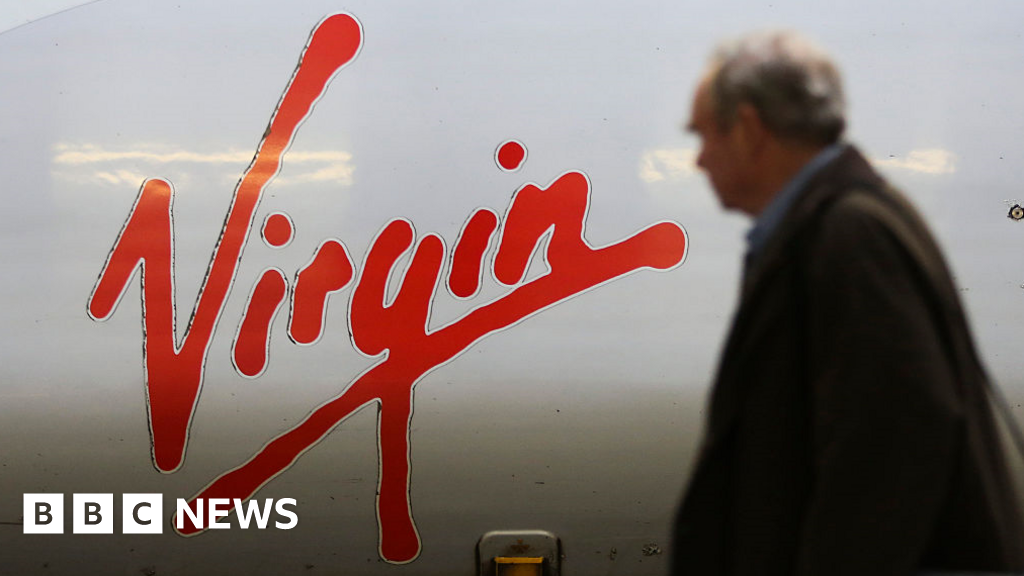- Author, Dearbail Jordan
- Role, Business reporter, BBC News
Virgin Trains could return to running rail services on the West Coast route between London and Glasgow five years after losing the franchise.
It means that Virgin would be competing with Avanti West Coast, the train company it lost the contract to in 2019.
Virgin Trains had operated the service, which runs from London Euston via Birmingham and Manchester to Scotland, for 22 years before it was disqualified from bidding for the franchise.
Virgin Group confirmed to the BBC that it had applied to the Office of Rail and Road, the regulator, for an Open Access licence.
Under this type of licence, a firm does not receive any state subsidies and takes on the risk of running a rail service itself. In contrast, a franchised operator, such as Avanti, holds a contact with the government to run the route.
A spokesperson for Virgin Group said: “While this application is just the first step towards exploring what might be possible, we think Open Access is the way forward.
“Open Access increases consumer choice and competition both of which Virgin has always supported.”
Since taking over the franchise, Avanti has faced fierce criticism over delays and cancellations.
Last September, the Department for Transport (DfT) renewed Avanti West Coast’s contract for up to nine years. The company is a joint venture between FirstGroup and Trenitalia, an Italian train operator.
But in March this year, Greater Manchester Mayor Andy Burnham called for Avanti to be stripped of the contract.
“I’ve completely run out of patience. I cannot accept this railway line being left in this perennial state of chaos,” he said.
The DfT ruled out such a move, stating that it “would just cause more upheaval for passengers rather than solving the challenges the operator is facing”.
Virgin Group said that it has applied to run services between London Euston to Preston and Rochdale via Manchester and Bolton in the north west as well as to Birmingham, Liverpool and Glasgow.
The previous train company was a joint venture between Sir Richard Branson’s Virgin Group and Stagecoach, the Scottish bus and rail company.
But a spokesperson for Virgin said that it had had made the application independently. If it was successful, it would manage the trains itself.
When Virgin Trains lost the contract, it had provided almost 500 million journeys. Sir Richard said at the time that he was “devastated”.
Its partner, Stagecoach had been disqualified from bidding for that franchise as well as two others because, according to the DfT, it did not meet rules about pensions and future funding.
Just last year, Sir Richard had hinted that he wanted to get into the rail business.
He told the Financial Times in December: “I would not be surprised if one day Virgin is not back in trains.”
A spokesperson for the group said: “Virgin is exceptionally proud of everything Virgin Trains and its wonderful onboard teams achieved in the UK.
“We’re confident customers would welcome Virgin Trains back, providing them with much-needed choice and competition.”

Robert Johnson is a UK-based business writer specializing in finance and entrepreneurship. With an eye for market trends and a keen interest in the corporate world, he offers readers valuable insights into business developments.







